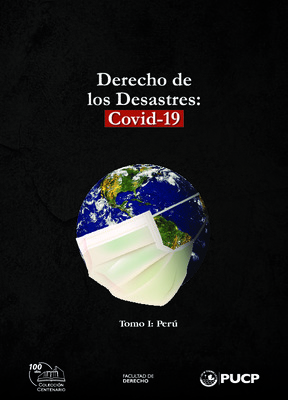Hacia una aproximación del concepto de progresividad de los derechos humanos en el ordenamiento jurídico peruano
Acceso a Texto completo
Abstract
El concepto de progresividad, entendido como el paulatino cumplimiento de los
derechos humanos, fue históricamente una categoría problemática, la cual
servía como justificación para el incumplimiento e inacción estatal. En efecto, el
mal entendimiento de este término ha generado que no se reconozca las
características de exigibilidad y justiciabilidad de los derechos sociales
considerándose estos como una simple buena intención. Además, generaría
impunidad en el supuesto de vulneración de algún derecho. No obstante, este
concepto ha ido evolucionado con el desarrollo normativo y jurisprudencial en el
Derecho Internacional de los Derechos Humanos (DIDH). Esta evolución del
concepto ha influenciado en el ordenamiento jurídico peruano reflejándose en la
normativa y jurisprudencia. Sin embargo, es necesario resaltar que, las
concepciones entorno a la progresividad en el derecho internacional y el derecho
interno son disonantes. Es por ello que, el presente trabajo buscará dar una
aproximación al concepto de progresividad en el ordenamiento jurídico peruano
a partir del análisis de los instrumentos internacionales y la jurisprudencia del
TC. Al final, es posible concluir que se debe adoptar el concepto de progresividad
más favorable para la protección y cumplimiento de los derechos humanos. En
ese sentido, considero que, se debe entender por progresividad como el avance
efectivo y constante del derecho y que la gradualidad no será usada como
excusa para que el Estado no emita medidas de garantía, y los avances
obtenidos no pueden ser injustificadamente regresivos. The concept of progressivity, understood as the gradual fulfillment of human
rights, was historically a problematic category, which served as a justification for
non-compliance and state inaction. In fact, the misunderstanding of this term has
led to the non-recognition of the enforceability and justiciability of social rights,
which are considered to be mere good intentions. Moreover, it would generate
impunity in the event of a violation of any right. However, this concept has evolved
with the normative and jurisprudential development of International Human
Rights Law (IHRL). This evolution of the concept has influenced the Peruvian
legal system and is reflected in the regulations and jurisprudence. However, it is
necessary to highlight that the conceptions of progressivity in international law
and domestic law are dissonant. For this reason, this paper will seek to provide
an approach to the concept of progressivity in the peruvian legal system based
on the analysis of international instruments and the jurisprudence of the
Constitutional Court. In the end, it is possible to conclude that the most favorable
concept of progressivity for the protection and fulfillment of human rights should
be adopted. In this sense, I consider that progressivity should be understood as
the effective and constant advancement of the right and that gradualness shall
not be used as an excuse for the State not to issue guarantee measures, and the
progress obtained cannot be unjustifiably regressive.
Temas
Collections
Related items
Showing items related by title, author, creator and subject.
-
Derecho de los Desastres : Covid-19
Pontificia Universidad Católica del Perú. Facultad de Derecho (Pontificia Universidad Católica del Perú. Facultad de DerechoPE, 2020)La presente obra, compuesta de dos tomos, contiene 67 ensayos que abordan el impacto de la pandemia en el derecho (específicamente en los campos del derecho constitucional, laboral, civil, penal, procesal, ambiental, ... -
La constitucionalización del derecho peruano
Landa Arroyo, César (Pontificia Universidad Católica del Perú. Fondo EditorialPE, 2013-11-21)Constitutionalizaton of Law’s different areas is a phenomenon gradually more ingrained in our cultural and legal framework. Maybe the best demonstration is the increasingly prominent role of the Constitutional Court (TC) ... -
La inhabilitación. Bases para un nuevo modelo regulativo
Yarlequé Montero, Jearsineo Ray (Pontificia Universidad Católica del PerúPE, 2020-01-27)El trabajo pretende ofrecer el contenido, sistematización, y aplicación operativa de la pena de inhabilitación en el Derecho Penal peruano. Se toma como punto de partida el estudio histórico, que permite observar su ...




